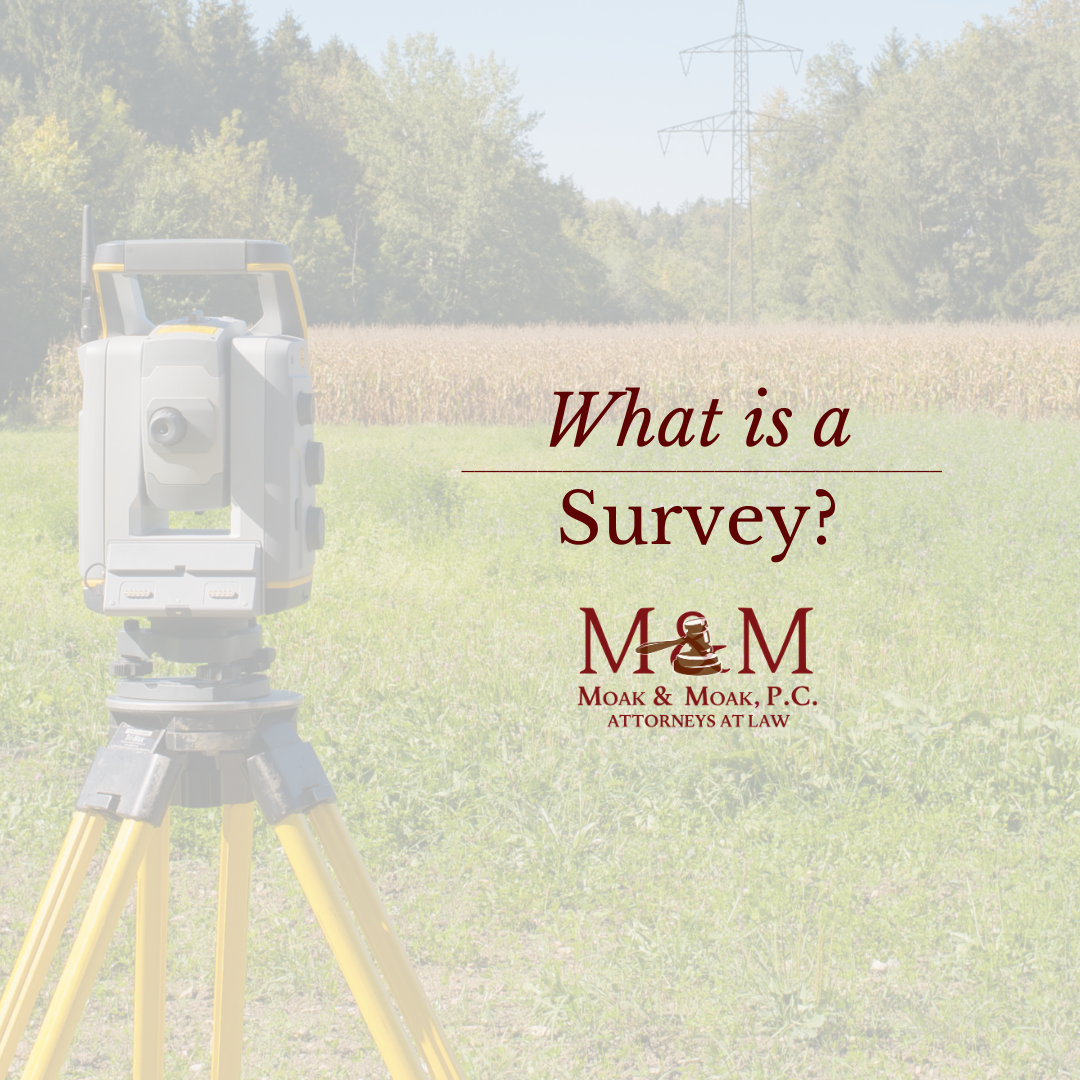One of the more common questions I get asked is “Do I need a survey for this transaction?” or “Will my old survey work?” In true lawyer-fashion….the answer depends.
It is very important to have a good legal description of the property when performing a title exam. A street address or Tax I.D. number are not usually adequate. While the property may be located by these, if this is the only description given, it usually adds time to providing the exam. This is because the Deed Records or Official Public Records do not use street addresses or tax I.D. numbers. The title company needs a description that is based on markers on the ground of the property and that includes distances, directions, and angles.
A survey is the process of locating and identifying the objects on and boundaries of a piece of property by measuring land and reviewing public records. The term is often used to refer to the resulting drawing of the surveyor’s findings. However, the drawing is only a portion of the surveyor’s work and is often called the Plat. A surveyor also prepares what is called a Metes and Bounds description which is a written descriptive information with the course, distance, calls, monuments and objects that have been surveyed. The written legal description is used to distinguish the property from all other real property.
The competency and training of the surveyor performing the survey is essential, as any land survey will be influenced by the analysis and evaluation of recorded information and field evidence. A proper survey involves not only work at the surveyor’s desk, but also in the courthouse and field. A surveyor should be impartial and simply record what is found in the records and on the ground. The Texas Board of Professional Land Surveyors is the licensing agency for land surveyors in Texas.
Normally, a title company reviews a survey as part of the transaction they are insuring. This review is of both the plat and metes and bounds description. This review is necessary to verify the public information identified by the surveyor matches what the title company has found of record. Additionally, the title examiner is verifying the distance calls are complete and there is no gap left. With the computer age, these “gaps” are less frequent.
There are several types of surveys and which one is right for your particular needs depends on the circumstances of your transaction. These types are as follows:
1A. Land Title Survey;
1B. Standard Land Survey;
2. Route Survey;
3. Locative Survey;
4. Reclassified Survey;
5. Construction Survey;
6. Topographic Survey;
7. Horizontal Control Survey;
8. Vertical Control Survey;
9. Investigative Survey; and
10. GIS/LIS Survey and Products.
When might you need a Survey?
• When buying or selling land, the location of which is not clearly defined on the ground.
• Before land is divided,
• If a lending institution requires a survey.
• If a line or corner is not defined.
• Before building close to a line.
• Before a lot is conveyed from a larger tract.
• When you believe someone has built on your property.
If you are purchasing or refinancing real property, do not forget to ask if a survey exists. Your lender may allow you to use the previous survey if you sign a sworn statement that there have been no alterations to the property since the date of the survey.
Fees of Surveyors are on a level with other professions. The Surveyor’s fees are dependent upon the type of survey, size of the tract and other factors, including the terrain and vegetation, accessibility, and if reliable survey monuments exist in the area. Therefore, the Surveyor will estimate the approximate cost of the survey for you prior to commencing the work.
I hope the information provided here provides some clarity as to the purpose of a survey and when one is necessary. However, if you have a question regarding a survey, you should contact the surveyor who prepared the survey, a local surveyor, or an attorney familiar with real estate.
—
Sam A. Moak is an attorney with the Huntsville law firm of Moak & Moak, P.C. He is licensed to practice in all fields of law by the Supreme Court of Texas, is a Member of the State Bar College, and is a member of the Real Estate, Probate and Trust Law Section of the State Bar of Texas. www.moakandmoak.com.

